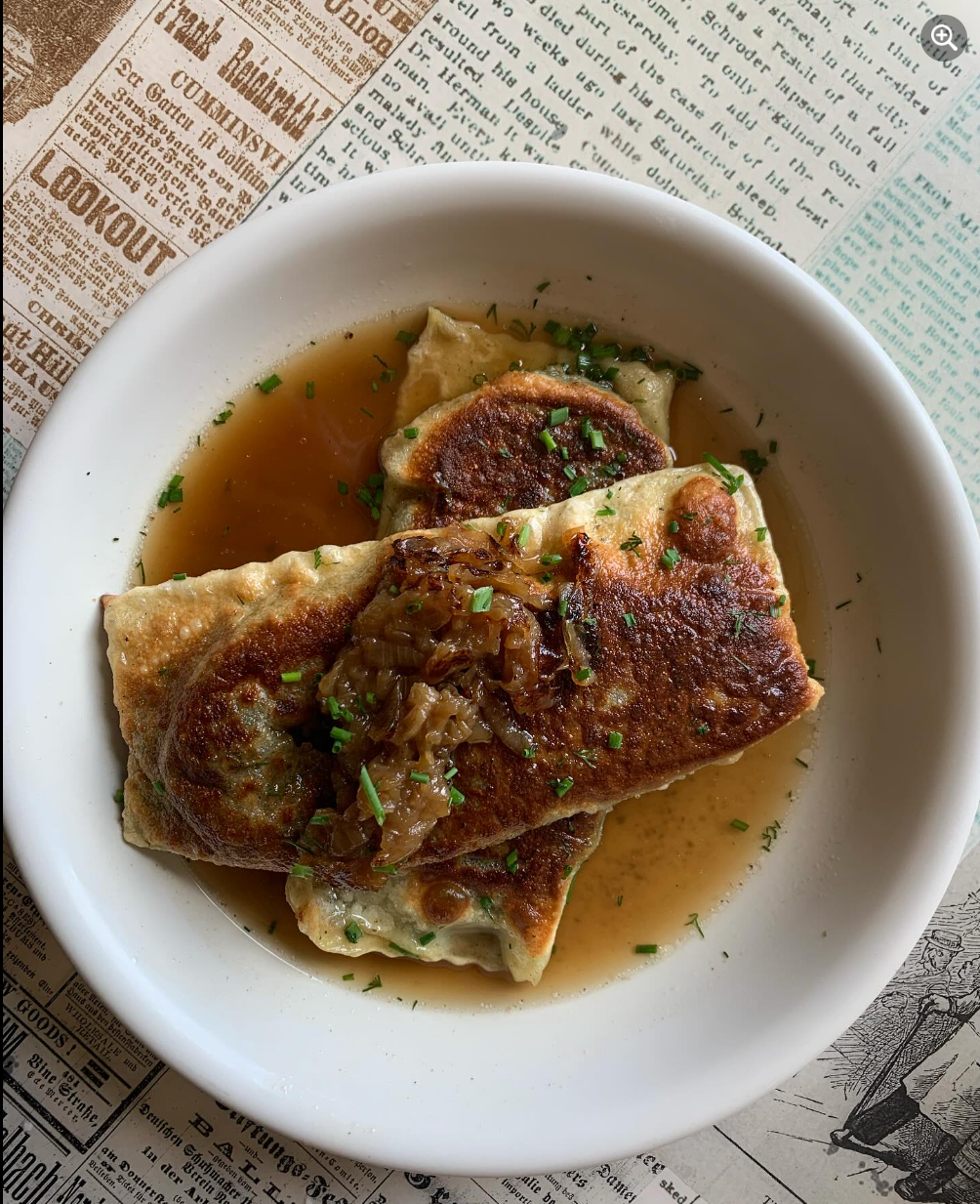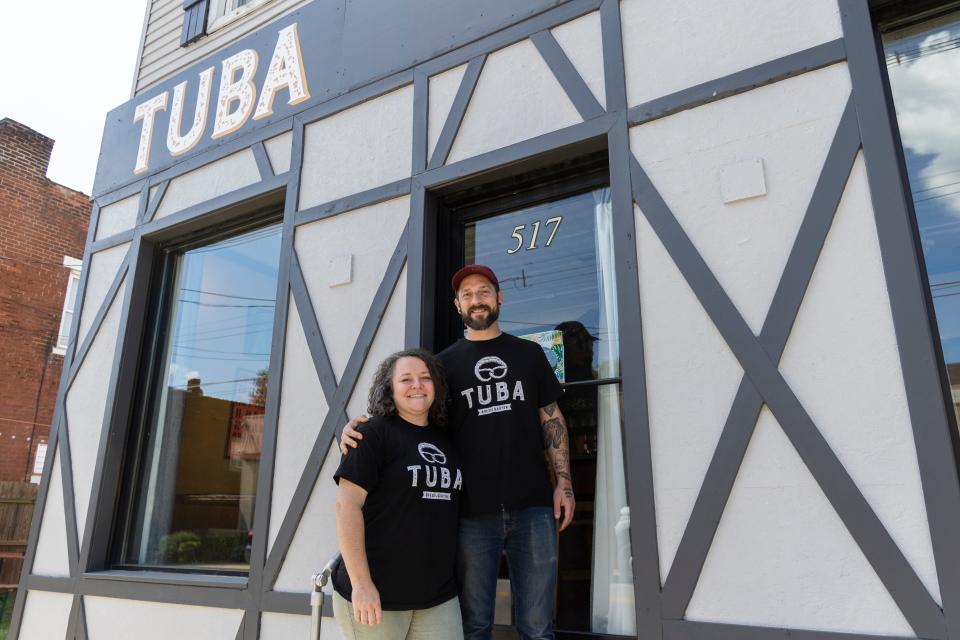A German-style ravioli with a wild hidden history | Highly Recommended

I was thumbing through Instagram last week when I came upon something that stopped my fat little thumb in its tracks. It was a picture of what looked like a seared enchilada-sized ravioli resting in a brown-colored broth and topped with caramelized onions. I had no idea what it was, but I knew that I wanted it.
The post came from Tuba Baking Co., the Dayton, Ky., German restaurant that's become one of my favorites in recent years. In the post, owner Drew Rath explained that the dish was called maultaschen (mau-l-tas-chen), which "is famous for its creation during Lent, where some monks decided to hide the fact that they wanted to eat meat without God knowing, so they mixed it with spinach and put it in a pocket of pasta where the Lord couldn’t see."
– At the Table: Sign up for Keith Pandolfi's weekly food newsletter –
I like that story. And whether it's true or not, the following Sunday, I drove to Northern Kentucky with my wife and daughter to try it for myself. When we arrived, Rath's wife, Valerie, told us they were out of the meat version (in which the pasta is stuffed with minced mettwurst, beef and pork) but still had three of the vegetarian versions (with mushrooms, spinach, lentils and onions). Given my experiences with Rath's cooking, I figured it would be good either way.

When it arrived at our table, the maultaschen looked exactly like it did in the picture. The pasta, made with spelt flour, was rustic and tasted like an excellent homemade ravioli, the stuffing was remarkably savory but light. My first forkful reminded me of French onion soup, though it had deeper hints of umami. Rath later told me he adds a dash of Maggi sauce, which is similar to soy sauce and adds to the broth's intensity.
While Lent is officially over – and there's no need to hide your meat from the Lord above – Rath plans on making maultaschen as a special. So before you go, call ahead to make sure he's offering them. When you arrive, order a German beer and grab a table or a seat at the bar. If they're not serving maultaschen that day, don't worry, Rath has plenty of other options, including Swabian-style pizzas, schnitzels and the best pretzels and beer cheese this side of the Ohio River.
Highly Recommended is a weekly spotlight on some of food writer Keith Pandolfi's favorite finds as he eats his way across Greater Cincinnati. Find more of his recent food writing here.
Highly Recommended Hall of Fame
This article originally appeared on Cincinnati Enquirer: This German-style ravioli dish has a God-fearing origin story